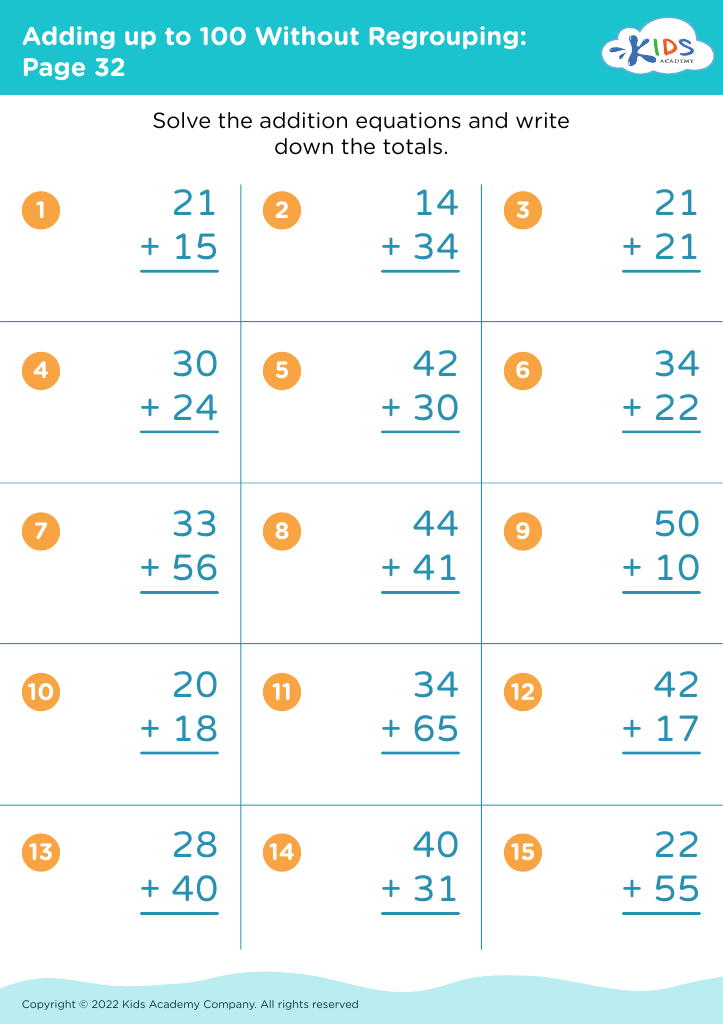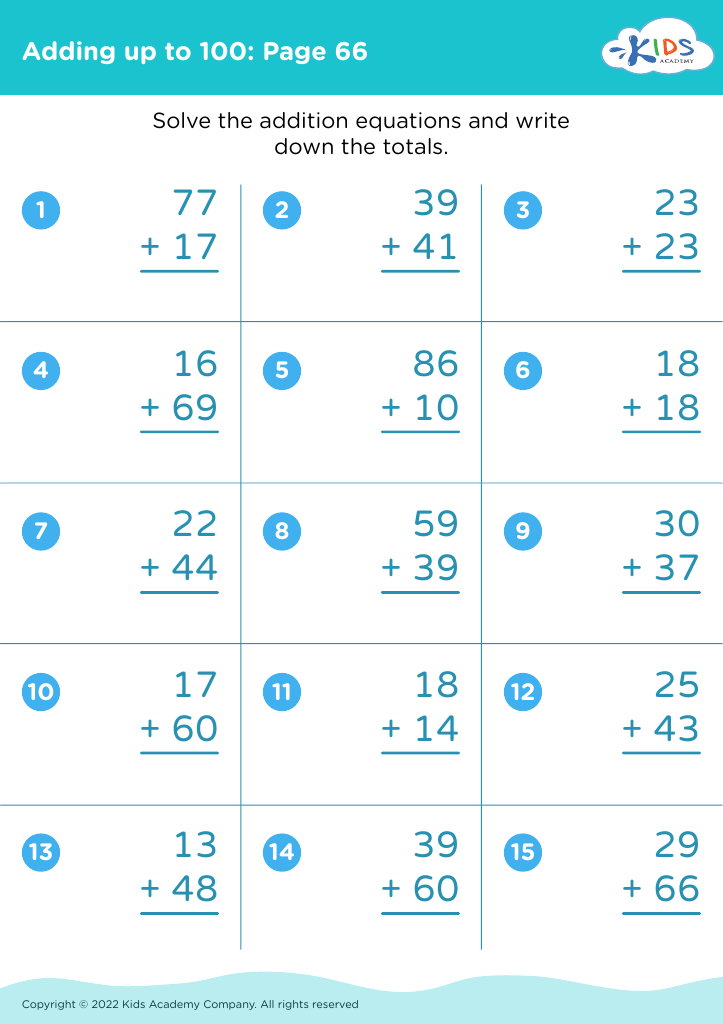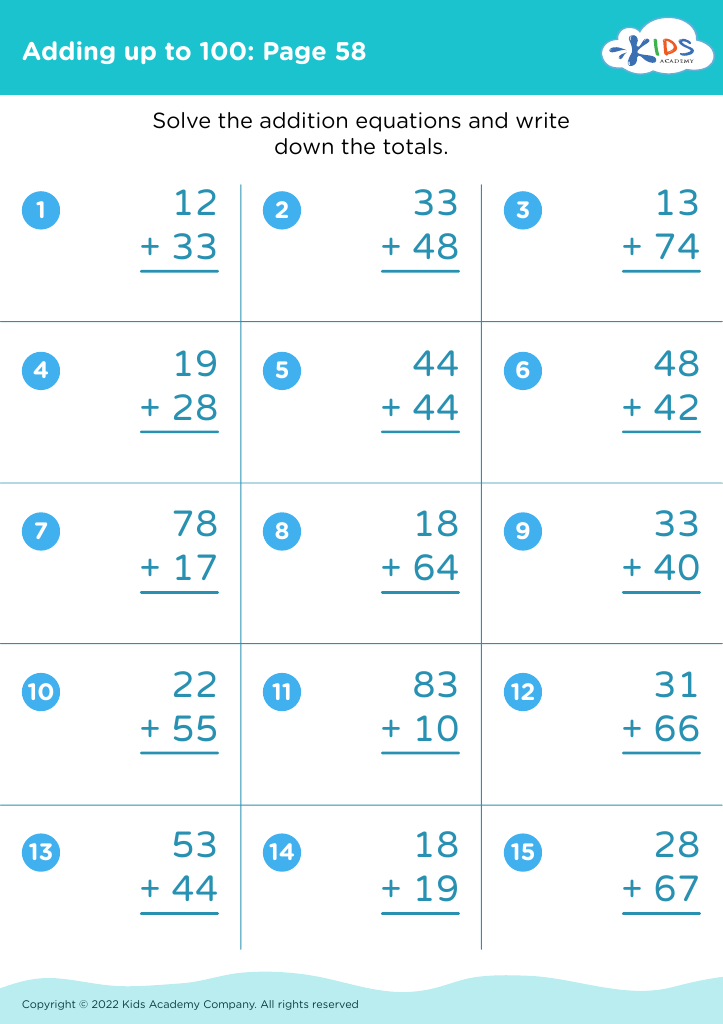Understand fractions Adding up to 100 Worksheets for 7-Year-Olds
5 filtered results
-
From - To
Welcome to our "Understand Fractions: Adding Up to 100 Worksheets" designed specifically for 7-year-olds! These engaging worksheets aim to introduce young learners to the world of fractions in a fun and interactive way. Through a variety of exciting exercises, children will explore the concept of fractions, learn to recognize different parts of a whole, and discover how to add fractions that total 100. Ideal for classroom or at-home use, our resources foster vital mathematical skills, promote critical thinking, and build a strong foundation in fractions. Dive into learning with our vibrant worksheets and make math an enjoyable experience for your child!
Understanding fractions and concepts such as adding up to 100 is crucial for 7-year-olds as they form the foundation for more advanced mathematical concepts. At this age, children begin to develop their numeracy skills, and fractions provide a tangible way to grasp the concept of parts of a whole. When children learn to identify and work with fractions, they enhance their ability to reason mathematically, think critically, and solve problems.
Moreover, adding fractions to reach a whole (e.g., 100) reinforces important skills like addition, subtraction, and equivalency, and promotes an understanding of relationships between numbers. This knowledge is not only essential for subsequent math topics but also has real-world applications, such as cooking, measuring, and managing money.
Teachers and parents should care about these skills because they foster self-confidence in young learners and prepare them for future academic success. An appreciation of fractions encourages positive attitudes toward math, which can influence their overall performance in school. Moreover, mastery of these concepts helps reduce math anxiety and sets a solid groundwork, enabling students to tackle more complex math problems in the coming years. Engaging with fractions early helps ensure a smoother transition to more advanced content in mathematics.











%20(1).jpg)








